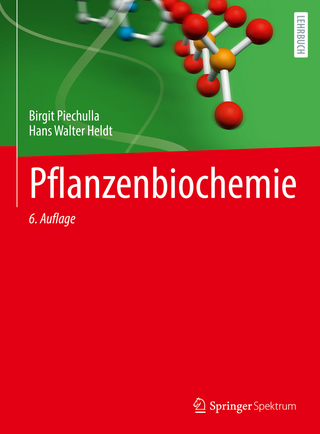
Capillary Electrophoresis of Nucleic Acids
Humana Press Inc. (Verlag)
978-1-61737-186-8 (ISBN)
Analytical Considerations for Capillary Electrophoresis.- Overview: The Application of Capillary Electrophoresis for DNA Polymorphism Analysis.- DNA Separation Mechanisms During Electrophoresis.- Purification Methods for Preparing Polymerase Chain Reaction Products for Capillary Electrophoresis Analysis.- Quantitative Measurements.- Microchip-Based Capillary Electrophoresis Systems.- DNA Sequencing by Capillary Array Electrophoresis.- 7 Determining Dye-Induced DNA Mobility Shifts for DNA Sequencing Fragments by Capillary Electrophoresis.- Capillary Matrix: Considerations for Capillary Electrophoresis.- Influence of Polymer Concentration and Polymer Composition on Capillary Electrophoresis of DNA.- Capillary Coatings.- Replaceable Polymers for DNA Sequencing by Capillary Electrophoresis.- Sieving Matrix Selection.- Parameters Affecting Capillary Electrophoretic Separation of DNA.- Electrophoresis Matrix: Applications for DNA Fragment Sizing.- DNA Separation by Capillary Electrophoresis in Lyotropic Polymer Liquid Crystals.- Capillary Electrophoresis of DNA Fragments Using Poly(Ethylene Oxide) as a Sieving Material.- DNA Capillary Electrophoresis Using Block Copolymer as a New Separation Medium.- 16 DNA Analysis Under Highly Denaturing Conditions in Bare Fused Silica Capillaries.- Capillary Electrophoresis with Glycerol as an Additive.- Capillary Electrophoresis of DNA Fragments with Replaceable Low-Gelling Agarose Gels.- Practical Applications for Large DNA Fragment Sizing and Fragment Collection.- Robust Field Inversion Capillary Electrophoretic Separation of Long DNA Fragments.- Pulsed-Field Capillary Electrophoresis Separation of Large DNA Fragments.- Collection of Capillary Electrophoresis Fractions on a Moving Membrane.- Separation of Supercoiled DNA Using CapillaryElectrophoresis.- Practical Applications for Oligonucleotide and Nucleotide Analysis.- Quality Control of Nucleotides and Primers for PCR.- Analysis of Modified Oligonucleotides with Capillary Gel Electrophoresis.- Use of Capillary Electrophoresis for Concentration Analysis of Phosphorothioate Oligonucleotides.- Capillary Electrophoresis Separation of Ribonucleosides.- On-Line Preconcentration and Separation of Antisense Oligonucleotides by ITP-CE in Dextran-Filled Capillaries.- Practical Applications for Analysis of Environmental Damage and Cellular Metabolism of DNA.- Capillary Electrophoresis-Mass Spectrometric Analysis of DNA Adducts.- Analysis of Environment-Induced DNA Damage by Capillary Electrophoresis.- Assay for DNA Damage Using Immunochemical Recognition and Capillary Electrophoresis.- Analysis of DNA Damage Using Capillary Zone Electrophoresis and Electrospray Mass Spectrometry.- Integration of Phosphodiesterase-Induced Degradation of Oligonucleotides with Capillary Polymer-Sieving Electrophoresis.- Capillary Electrophoresis of Urinary Normal and Modified Nucleosides of Cancer Patients.
| Erscheint lt. Verlag | 10.11.2010 |
|---|---|
| Reihe/Serie | Methods in Molecular Biology ; 162 |
| Zusatzinfo | XVI, 484 p. |
| Verlagsort | Totowa, NJ |
| Sprache | englisch |
| Maße | 152 x 229 mm |
| Themenwelt | Naturwissenschaften ► Biologie ► Biochemie |
| ISBN-10 | 1-61737-186-6 / 1617371866 |
| ISBN-13 | 978-1-61737-186-8 / 9781617371868 |
| Zustand | Neuware |
| Haben Sie eine Frage zum Produkt? |
aus dem Bereich


